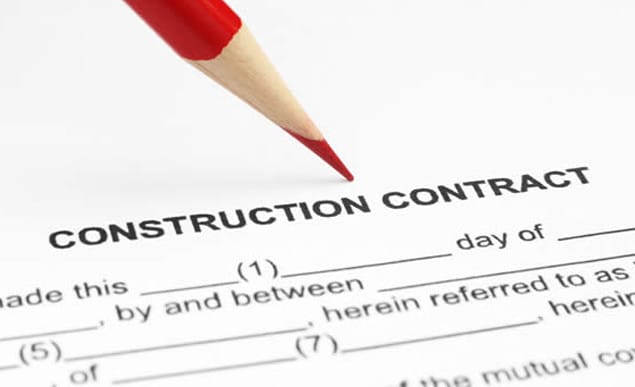
Please Note: This is the old version of this article. For the updated version, please click this link to the Sept 2020 Update.
A lot can go wrong when building or renovating. Fortunately home owners in NSW are covered by a range of laws designed to ensure that builders are licensed, insured and competent and that home owners are protected in the event of a problem or disagreement.
Here we detail the key laws that relate to home building, including the new and revised laws that came into effect on January 15, 2015.
Licensing
Licences are required if:
- Residential building work conducted by builders or tradespeople is valued at more than $5,000 (was $1,000 prior to January 15, 2015). NSW Fair Trading is the licensing body and you can check licenses on their website here >>
- There is specialist work like plumbing, air conditioning, electrical work and gasfitting, regardless of the work’s cost.
- The work requires more than one tradesperson or you need a builder to manage the building project and co-ordinate the tradespeople, such as plumbers, painters and carpenters.
Home Building Compensation Fund
Until January 15, 2015 this was known as Home Warranty Insurance. If work is worth more than $20,000 including labour and materials, the builder or tradesperson can’t start work or ask for money (including a deposit) until they give you a copy of the Home Building Compensation Fund certificate for your job.
Certain types of work are exempt; NSW Fair Trading’s Home Building Compensation Fund page has further information.
Payments and Contracts
The maximum deposit you can be asked to pay before work starts is 10%.
Contracts must be in writing. The two main types of contract types are:
- Fixed price or lump sum – where the builder or tradesperson agrees up front to a fixed amount for the whole job. Unforeseen changes during construction may affect the final cost.
- Cost plus contract – there is no guaranteed final cost for the job (often this contract is used where the project’s nature prevents the final cost from being calculated). The consumer repays the builder for verified direct and indirect costs and fees at regular intervals. It is good practice for the builder to give a non-binding estimate before starting, and track costs with you against the project’s budgeted estimate.
Residential building work worth more than $20,000 requires a full home building contract. It must include information such as the details of the statutory warranties the builder must provide, and the contract price (or warning that the contract price is not known). A complete list of contract requirements is here >>. Addbuild Additions uses the NSW Fair Trading Home Building contract, a plain English contract that complies with all requirements.
Contracts over $20,000 in value must also have a progress payment schedule. Progress payments must match the work carried out and, for cost-plus contracts, be supported by receipts or other verifying documents.
Any change you need to make to a contract is a ‘variation’. Variations must be in writing and be signed by both parties to the contract. Almost all will impact the contract price.
Common traps and tricks
Beware of:
- An extremely low quote compared with others. This may indicate the job’s quality is being compromised. Or, the builder may not fully understand what is required.
- ‘Sales pitches’ putting pressure on you to sign a contract quickly to avoid a price increase.
- A builder who recommends you get an owner-builder permit while they organise all the building work. The builder may be trying to avoid responsibility and may not have the right kind of licence or Home Building Compensation Fund certificate.
When things go wrong
Statutory warranties
Builders and tradespeople must guarantee that their work is fit-for-purpose, performed diligently and delivered in a reasonable timeframe, in line with the contract. Unless otherwise specified, materials should be new and appropriately used. These warranties are time-limited: legal proceedings to enforce them must be commenced within 2 years for all defects, and 6 years for ‘major defects’. There is another 6 months for both warranty periods if the defect only became apparent after 18 months or 5 and a half years. Find out more about these warranties on the Fair Trading website.
Resolving a dispute
These steps can help you resolve a dispute:
You must notify your builder or tradesperson and discuss concerns as soon you become aware of a problem. Follow up with an email or letter.
- Understand acceptable work standards by downloading the Guide to Standards and Tolerances from NSW Fair Trading
- Contact Fair Trading for free dispute resolution if you and your builder or tradesperson are unable to resolve the dispute.
- Lodge a claim with the NSW Civil and Administrative Tribunal if you remain unsatisfied with the dispute resolution outcome.
- Protect your rights under the Home Building Compensation Fund: contact your insurer as soon as you become aware of defective or incomplete work.
This information is based on the NSW Fair Trading Consumer Building Guide as of May 15, 2015. To download a copy of the guide, click here >>

